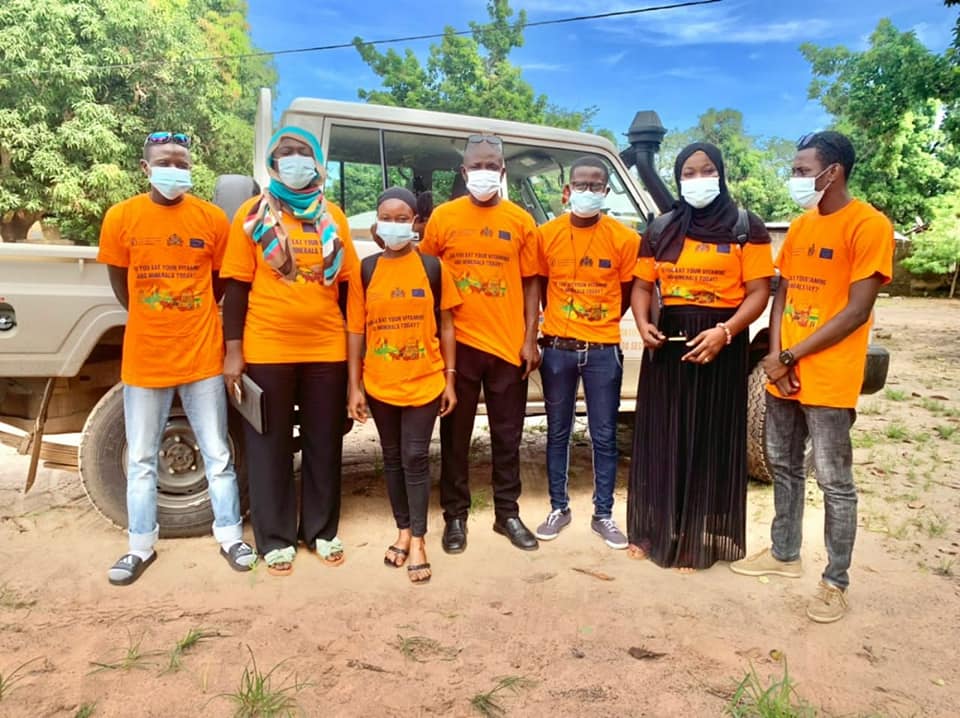
The Gambia Rapid Food Consumption Survey According to the 2018 Gambia Micronutrient Survey (GMNS) conducted by the National Nutrition Agency (NaNA), there exist a high proportion of children and women of childbearing age with Iron Deficiency Anaemia (IDA) and Vitamin A Deficiency (VAD). To help improve this nutrition situation in the country, 2 projects to improve food and nutrition security through food fortification and bio-fortification supported by the European Union (EU) through Food and Agriculture Organisation (FAO) and United Purpose (UP) were initiated in 2016. The projects focus on bio-fortifying pearl millet, maize, sweet potatoes, and cassava with Vitamin A and iron and also fortifying some staple foods (Wheat Flour with Iron and Folic Acid, Vegetable Oil with Vitamin A, and Salt with Iodine).The implementation of the projects requires reliable estimates of the average daily per capita consumptions of the targeted foods and crops. Thus, the initiation of a Rapid Food Consumption Survey. Moreover, in order to inform policy and strategies, the country deemed it prudent to make it a nationwide survey.
The Gambia Rapid Food Consumption Survey is supported by Food and Agriculture FAO and UP and is being implemented by NaNA, Gambia Bureau of Statistics (GBoS), Ministry of Health (MoH), Ministry of Agriculture (MoA), Food Safety and Quality Assurance (FSQA) and UP. A Survey Consultant was recruited by FAO to provide Technical Support for the entire Survey.The objective of the survey is to measure the frequency of consumption and average intake levels of selected food vehicles such as wheat flour, rice, bio-fortified maize, orange Fleshed Sweet Potato, bio-fortified pearl millet, oil and bouillon cubes, fruits and vegetables among urban and rural consumers specifically children aged 6 – 59 months and women aged 15 – 49 years old in The Gambia. In order to create awareness, increase participation, reduce non-response and withdrawal rates, and ensure maximum coverage of the survey, a social mobilization campaign was led by a technical team. The social mobilization explained the objectives, timing, and target groups and how the information gathered will be used by the country to inform policies and strategies. Community Radio stations were hired to mobilize the communities and this was supported by the use of MDFT members who went to all the selected communities to inform them of the Survey. Prior to the start of the survey, an official letter was written to all the Mayors and Regional Governors informing them of the survey and requesting their support in mobilizing the communities. The Enumerators also met with the Village Allkalos (Head) to formally inform them of their arrival, the purpose of the survey, and requesting their permission to go ahead with the data collection.The survey fieldwork started on September 18, 2021, and lasted for 21 days, which covered eight Local Government Areas (Banjul, Kanifing, Brikama, Mansakonko, Kuntaur, Kerewan, Janjanbureh, and Basse)